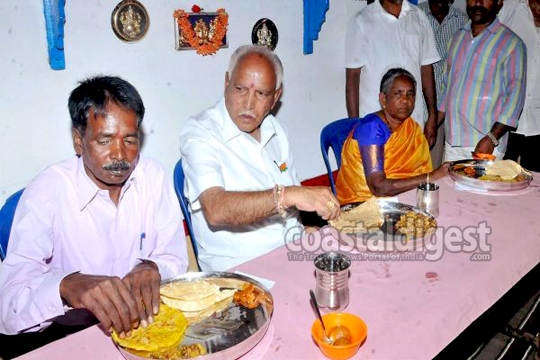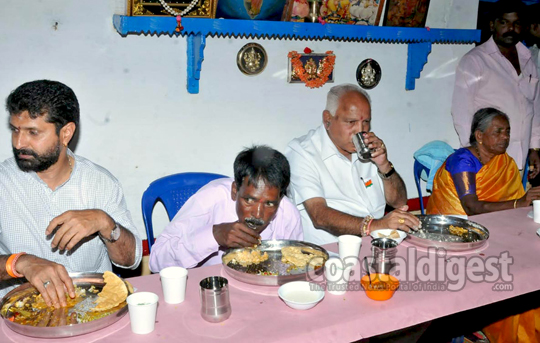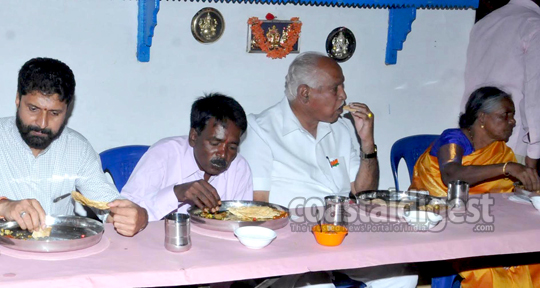Chikkamagaluru, Jun 20: Former chief minister and BJP state unit president B S Yeddyurappa, who has been dining at Dalits’ houses, savoured indigenous menu in the district on Monday.

Sannathammaiah, a Dalit at Marle village, played host to the BJP heavyweight and his entourage of MP and MLAs, serving them akki rotti, palya, chutney and upma.
Lakshmi, the elated wife of Sannathammaiah, said, “It’s a matter of joy that Yeddyurappa has come to our house. I had prepared akki rotti and uppittu (local parlance for upma) for him.”
Yeddyurappa, who was accompanied by MLC Pranesh and MLAs C T Ravi and D N Jeevaraj during the time, also visited Kencharaya Temple.
He enquired a senior citizen Mahalingamma about the old age pension. Addressing a gathering during the Janasamparka Abhiyhan at the village, he said, “The opposition parties indulge in negative publicity against the BJP leaders dining at Dalits’ houses. Chief Minister Siddaramaiah though has completed four years in office, has not even called on the Dalits to enquire about their travails even for once. Similar is the attitude of ministers who don’t have time for marginalised community.
Yeddyurappa also alleged that the state government has dropped Bhagyalakshmi Scheme launched by previous BJP government.
Continuing his tirade against the Congress party, Yeddyurappa said that while the Congress has ignored the ideals espoused by Dr B R Ambedkar, Prime Minister Narendra Modi succeeded in invoking Ambekdar’s principles at Lok Sabha. The Centre has also taken measures to identify and develop five places associated with the Dalit icon as a pilgrimage centre, the former chief minister said.
Highlighting the recent decision of the governments at Uttar Pradesh and Maharashtra to waive farmer loans, Yeddyurappa said Siddaramaiah intentionally did not follow the suit, and instead pointed at the Centre to make a move.







Comments
Why does the food on Yeddyurappa's plate look different ? Was his food from Resturant?
new plates , cup nd hotel food
Add new comment